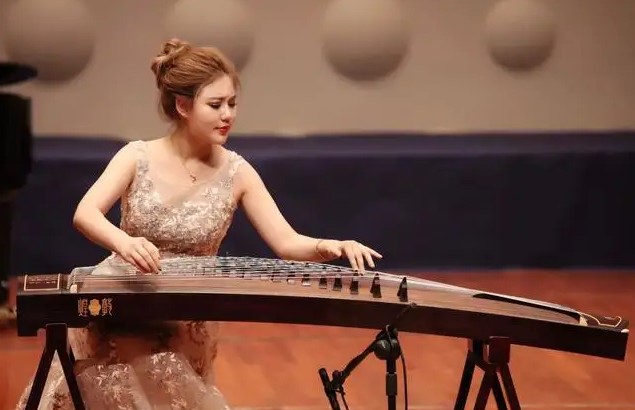Wang Xiaoping: How to do a good review in the guzheng class?
Every time the review class is so boring, the content is all learned before, and there is no new technique or new song practice, so I don’t want to take it at all. . .
However, everyone knows how important review lessons are. So how can we stimulate students' enthusiasm for learning in the review class, and make the review class as fresh and interesting as the new class? Let Associate Professor Wang Xiaoping, the founder of the 1+1 Guzheng Basic Teaching Method, tell you that doing 3 points can make the review class interesting and effective!
Guzheng lessons generally consist of two parts: review lessons and new lessons.

The review class in guzheng teaching is a very important teaching process, which plays a pivotal role in consolidating students' foundation, cultivating and improving students' skills and their ability to use them. However, the guzheng review class is a more difficult class. The difficulty lies in the fact that the students' enthusiasm for learning will decrease because of the content they have learned. However, some techniques and music of the guzheng can only be mastered after a period of repeated practice, and can be perfected continuously through repetition, such as four-point, finger-shaking and other techniques. Therefore, how to stimulate students' enthusiasm for learning in the review class has become a topic that our guzheng teachers must think deeply and study.
If you want to take a good Guzheng review class, you should follow three teaching principles:
systemic principle
In the review process, teachers should give full play to the enthusiasm and initiative of the students, let the students find their own mistakes, so as to stimulate the students' interest in learning. For example: when reviewing the four-point practice, the teacher can ask the children to check whether the hand shape is standardized and whether they are playing correctly, or they can invite individual children to play on the podium, so that other children can identify how he or she is playing, and let the students Actively participate in the entire review process.
pertinence principle
When reviewing, teachers must focus on key points and be targeted. In the process of reviewing, the teacher should firstly find the weak link of the whole class in time, and conduct repeated practice for this weak link. The methods of practice can be group practice, group practice, or individual practice. The second is to provide individual guidance (teaching implementation) for the problems existing in individual students. Find problems and solve them in time. Teachers should have the ability to identify and solve problems.
systemic principle
In the review process, practice must be systematic and organized. What to practice first, what to practice later, you must know what to do. For example, for beginners, each class must practice the fingering method of "tick, tuck, wipe", and then practice four-point practice on this basis, and the speed of practice should be slowed down. When practicing the combination of on-glide and glide, you must first practice on-glide and glide, and on this basis, practice the combination of on-glide. During the review process, the teacher should make requests from time to time, practice while speaking, and should focus on speaking and practicing more (don't talk too much, and the pronunciation in class should be refined), and the main thing is to practice. Practice should follow the principle of step by step, from shallow to deep, and pay close attention to the practice of basic skills. Of course, teachers should take good care of the teaching time during the review class, and should not exceed 20% of the entire teaching time.
In a word, review is a very important part in the whole guzheng teaching process. How to take a good review class is also a concern of our guzheng teachers. I hope every guzheng teacher will pay attention to the review class in guzheng teaching, and further standardize our teaching, so that Our teaching goes to the next level.
 渝公网安备 50010702504639号
渝公网安备 50010702504639号